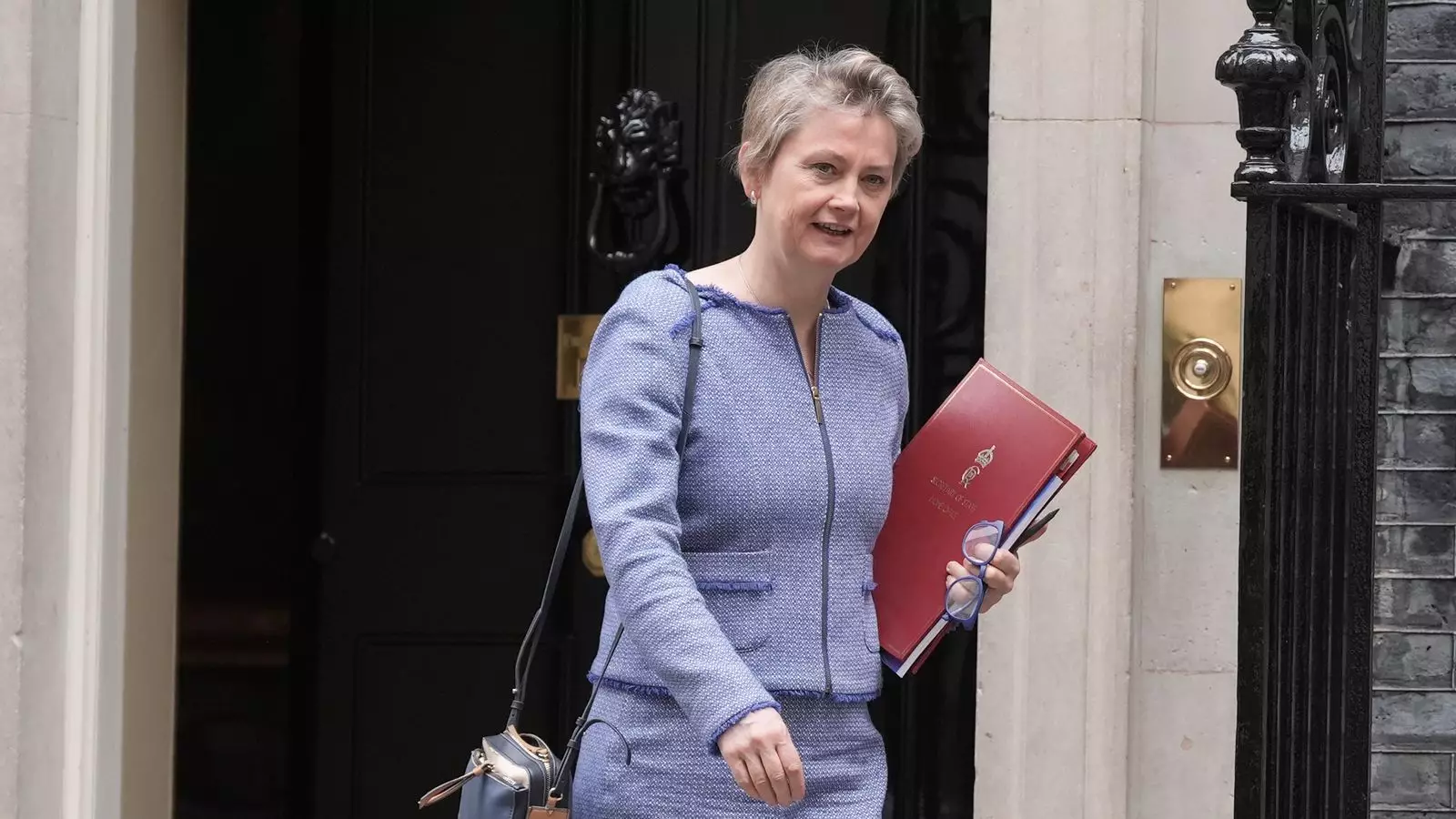The recent “one in, one out” deal between the UK and France exemplifies the glaring disconnect between policy rhetoric and actual effectiveness. At face value, it promises a pragmatic approach—returning migrants crossing the Channel while offering legal routes for genuine asylum seekers. Yet, beneath this veneer lies a fundamental flaw: the lack of concrete commitments on numbers or enforcement measures. This spin is merely a band-aid on a much deeper wound. It reveals a government unwilling to confront the realities of sustained migration pressures and instead prefers to manage symptoms rather than root causes. The failure to establish firm quotas not only undermines the credibility of the initiative but also signals a reactive stance driven by political optics rather than strategic foresight.
The Myth of a Quick Fix Amidst Complex Challenges
The reliance on a “pilot” program, with no fixed migrant return figures initially, is symptomatic of a short-sighted approach. Pilot projects are essential, but only when they confront and adapt to realities, not when they serve as vague placeholders delaying meaningful reform. The decision to avoid initially setting clear targets suggests an unwillingness to commit to measurable progress. Effective border management requires bold policies grounded in legal clarity, logistical capacity, and international cooperation. Instead, what we observe is a cautious dance, where policymakers prefer to deploy incremental, unverifiable promises rather than addressing structural issues such as living conditions in France, legal routes, or the reform of asylum laws—factors that significantly influence migration flows in the first place.
The Ill-Fated Promise of “Safe, Legal” Routes
The agreement’s emphasis on expanding legal pathways for asylum seekers is perhaps the most optimistic aspect—but one hamstrung by vague commitments and unfulfilled promises. Offering safe routes is a moral imperative and an internationally recognized best practice; however, its symbolic value is diminished when actual capacity and clarity are absent. If the UK genuinely intends to reduce dangerous crossings, it must invest in comprehensive legal avenues and streamline asylum processes rather than relying on vague promises or symbolic gestures. Without concrete investments, the “safe route” narrative remains a hollow foreign policy ploy, unlikely to stem the flow of desperate individuals risking their lives through perilous crossings.
The Political Game: From Brexit to Blame-Shifting
A critical, understated element in this saga is the shared blame game. Macron’s claim that Brexit spurred the increase in crossings oversimplifies the complex, multifaceted migration dynamics. Yes, the UK’s departure from the EU disrupted existing legal frameworks like the Dublin Agreement, but to pin the entire crisis solely on Brexit is a misconception. It sidesteps the broader humanitarian and socioeconomic drivers compelling people to undertake these dangerous journeys. Moreover, framing migration as a problem caused by the UK’s exit feeds populist narratives that fuel xenophobia and fear-mongering, instead of fostering honest, constructive dialogue. This hand-wringing approach risks turning a human tragedy into a political football, further entrenching division instead of fostering resolution.
The Real Stakes: Addressing Root Causes Versus Shuffling Blame
This entire debate dovetails into a deeper question: Are we committed to solving the root causes of migration, or are policymakers content with superficial fixes that serve political interests? Managing migration effectively necessitates a holistic approach—addressing conflicts, economic disparities, and human rights issues that propel individuals to seek refuge abroad. Merely deploying temporary returns and symbolic legal routes neglects these complexities. It also perpetuates a cycle where criminal gangs exploit the lack of coordinated European policy, profiting from chaos and insecurity. Effective reform must involve a concerted effort among EU nations, investment in development programs, and fair asylum policies that respect human dignity.
The Downside of Political Spin and Lack of Ambition
Ultimately, the UK’s current approach is an abdication of leadership. Promising to “trial” new policies without firm commitments indicates fear—fear of backlash, fear of appearing weak, or simply a lack of political courage. Such half-measures embolden criminal networks and perpetuate dangerous crossings rather than dismantling their infrastructure. It’s naive to think that a vague “pilot” with fluid numbers can address the complex human and legal issues at hand. Genuine leadership requires crafting clear, enforceable policies rooted in legal integrity and humanitarian principles rather than resorting to populist posturing. Only through a bold, transparent strategy—one that confronts root causes and emphasizes international cooperation—can the UK hope to move beyond these superficial fixes and tackle the migration crisis with integrity and efficacy.


Leave a Reply